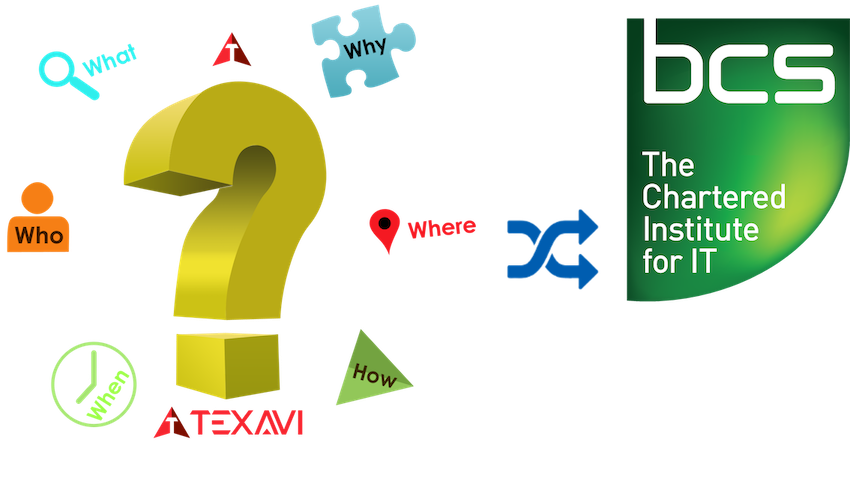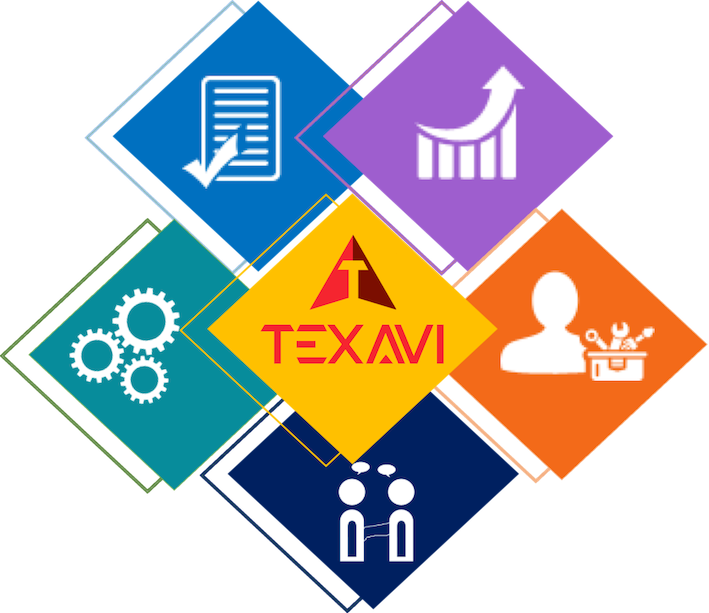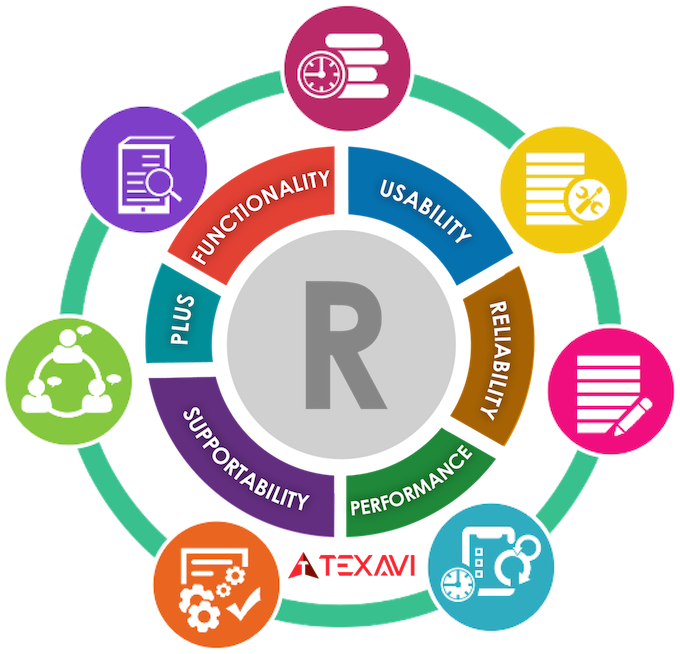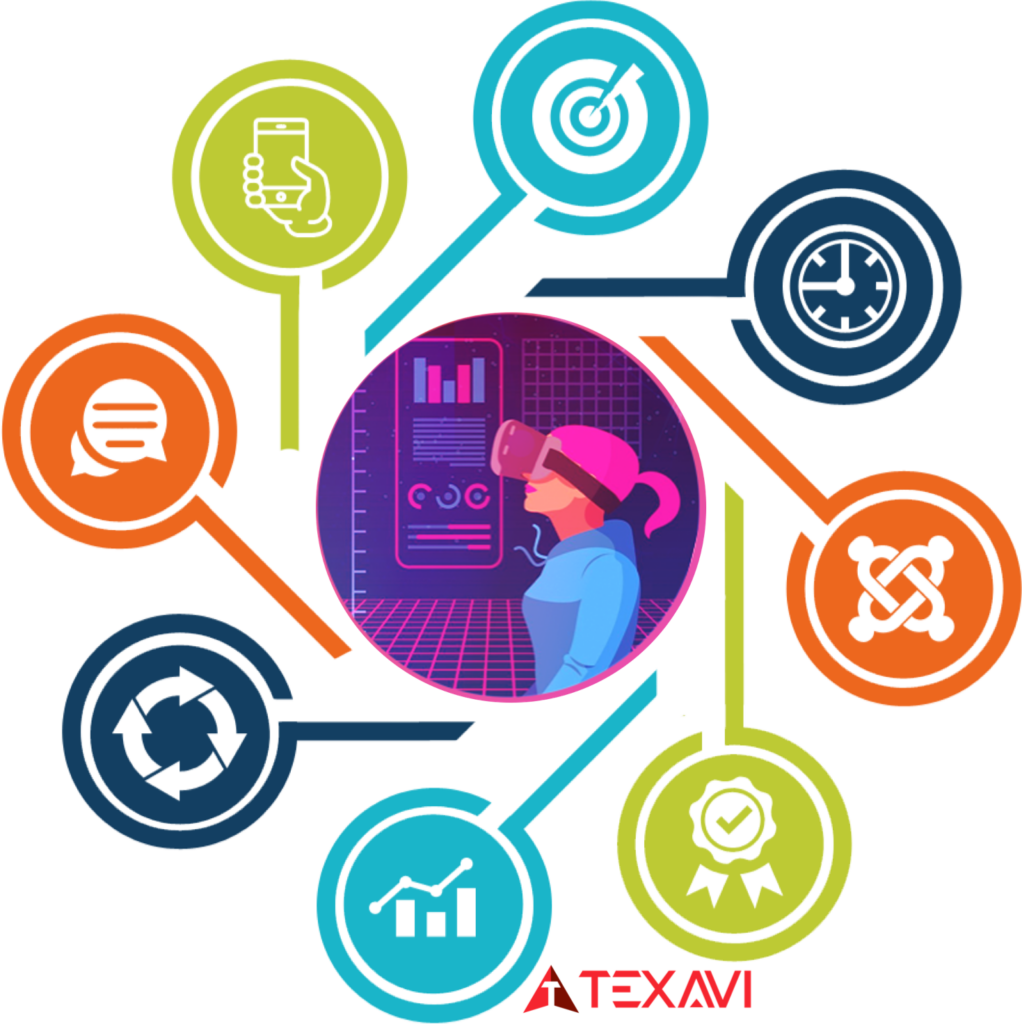BCS Business Analysis Oral Exam Preparation Workshop
Intensive Workshop for Oral Exam Preparation with Concepts, Techniques and Tools in Business Analysis. Select Course Date and Time Based on Your Convenience!
- Instructor-led, Online
- Course Category: Business Analysis, Prep, Certification, BCS, Oral Exam
GBP
250
Instructor-led, Online
Duration: 8 Hours
Course Code: TXV-BCS-OEP1
Skill Level: Intermediate
BCS Business Analysis Oral Exam Preparation Workshop
Overview
BCS business analysis diploma is a proven testament for successful business analysis professionals to showcase their competency, knowledge and application of the concepts, principles, methods and techniques. The oral examination for the BCS business analysis diploma is prescribed after successful completion of foundation and practitioner business analysis courses. Take the TEXAVI Course on BCS Business Analysis Oral Exam Preparation Workshop for insights on the structure, objectives and syllabus of the exam and a low-down on the specific topics to help you prepare for success, not just in the exam but also in career as a BA professional.


Who can attend?
- Business analysis professionals with work experience
- IT professionals (eg., Developers, testers) considering a move to BA role
- Non-IT people who want to learn IT skills thinking of a career switch
- Graduates and university students who aspire to get into IT industry
- Students who have just passed their B. Tec, A-Levels or college studies

COURSE OUTLINE
-
Module 1: Overview of the Oral Process
-
Module 2: The Business Context
-
Module 3: Business Analysis Techniques
-
Module 4: Business Case Development
-
Module 5: Requirements Definition
-
Module 6: Requirements Management
-
Module 7: Knowledge-based Specialism
-
Module 8: Practitioner Specialism

What will you learn?
By the end of this course, you will be able to:
-
Provide general description of the Oral exam process
-
State the guidelines for candidates/test takers
-
Define the rationale and set context for business analysis
-
Discuss the concept of ‘business-focussed, IT-literate’
-
Explain the holistic view of a business system
-
Highlight the competencies of a business analyst
-
Describe professionalism in business analysis
-
Discuss what benefits business analysts can offer to organisations
-
Elaborate on the business environment analysis
-
Describe the lifecycle of business change
-
Discuss how strategy differs from mission and tactics
-
List the techniques for analysing organisation’s external environment
-
List the techniques for analysing organisation’s internal environment
-
Define SWOT analysis and discuss its purpose of usage
-
Explain creating SWOT analysis from external and internal environment factors
-
Define business performance measurement
-
Define critical success factors(CSFs) and key performance indicators(KPIs)
-
Explain how CSFs, KPIs and performance targets are linked to each other
-
Define balanced business scorecard (BBS) and discuss its relationship to strategy
-
Examine following business analysis techniques, give pros and cons, where and when they are applicable:
-
Mind maps
-
Rich pictures
-
RASCI matrix
-
Stakeholder wheel
-
Business perspectives (CATWOE model)
-
Business activity model (BAM)
-
Gap analysis
-
-
Discuss where BA fits into the lifecycle of business change
-
Explain approaches for investigating and documenting business situations
-
Identify the techniques to conduct stakeholder analysis
-
Describe the use of RASCI matrix to manage stakeholders
-
Define power-interest grid and explain purpose of PI grid
-
Discuss the use of PI grid for analysing and prioritising stakeholders
-
State the techniques for modelling stakeholders’ perspectives
-
Specify how stakeholders are categorised into different groups
-
Discuss how business activities are modelled based on stakeholder perspectives
-
Explain the differences between as-is and to-be models of business activities
-
Define a business event
-
Explore types of business events viz., external, internal and time-based
-
Define business rule
-
Describe how business rules are critical in business analysis
-
Explain types of business tules viz., constraints, policies and procedures
-
Explain the process of gap analysis
-
State the rationale for making a business case
-
Explore link between business case and business change lifecycle
-
Describe the structure and contents of a business case
-
Discuss how options (incl. ‘do nothing’ option) are stated in business case
-
Elaborate on using cost-benefit analysis for investment appraisal
-
Define approaches and techniques in risk analysis and risk management
-
Describe the steps involved in business impact analysis
-
Discuss business benefits and ways to realise the benefits
-
Define requirements engineering and the key activities
-
Explore definition, management and specification of requirements
-
Explain how requirements act as a bridge between problem and solution
-
Describe requirements engineering framework and its key components
-
State the hierarchy of requirements in terms of the different types
-
Business requirements
-
Solution requirements
-
General requirements
-
Technical requirements
-
-
Define functional requirements viz., CRUD to manage data
-
Define non-functional requirements and mention the types of NFRs
-
Differentiate between functional and non-functional requirements
-
Highlight the techniques to elicit requirements and their purposes
-
Interviews
-
Workshops
-
Prototypes
-
Focus groups
-
Surveys/questionnaires
-
Activity sampling
-
-
Discuss tacit knowledge and role of elicitation in exploring it
-
Describe the tasks in requirements analysis
-
Explain the techniques used in prioritising requirements
-
Define MoSCoW technique and its purpose
-
Explore the tactics used in reducing the ambiguity in requirements
-
Define requirements validation
-
Explain the approaches and techniques used to validate requirements
-
Define requirements verification
-
Explain the approaches and techniques used to verify requirements
-
Discuss management of requirements and the benefits from it
-
Highlight the elements and activities in requirements management
-
Define change control and explain the benefits from it
-
Describe the sources of changes for requirements
-
Define version control and explain the benefits from it
-
Explain what baselining of requirements means and its key benefits
-
Define configuration management and its importance in IT
-
Elaborate on configuration item (CI) and give examples for CI
-
Discuss the different tools used in requirements management
-
Explain the legal issues related to business analysis activities
-
Describe the rationale for laws on data protection and accessibility
-
State the purpose and approaches of requirements documentation
-
Explore the requirements documentation styles and formats
-
Define requirements catalogue and its purpose
-
Give examples of requirements documentation at catalogue level
-
Give examples of requirements documentation at catalogue entry level
-
State the rationale for requirements modelling and expand on its benefits
-
Illustrate use case models, conceptual and logical data models
-
Explain the relevance of testing to requirements engineering
-
Discuss the relevance of chosen specialism modules to business analyst role
-
Explain the relevance of the specific module to the organisation
-
Describe the module in terms of the BA concepts, approaches and techniques

What do you need?
You should have taken at least four specialism courses from the BCS Business Analysis Diploma track. The course is suitable for experienced professionals working in the industry or academia, aspirants and early stage professionals. Professionals and aspirants from technology, business, operations or sales are all welcome to explore BCS business analysis diploma oral exam structure and expectations as well as the revision of key concepts, techniques and tools in business analysis.
WHAT'S INCLUDED?
- 24×7 access to TEXAVI’s high quality course content
- Practical insights from real life IT projects
- Course completion certificate
- Case studies, examples and illustrations
- Interactive quizzes and challenges
- Job aids, resources and tools
- Access to TEXAVI’s collaborative digital platform

Why Texavi?
-
TEXAVI is a proven leader in delivering non-coding IT learning, worldwide
-
We are not just trainers, but practising IT professionals with 25+ years of work exp
-
Our courses get you job-ready with practical and real-time insights
-
Qualify for certificates upon completion and complete our assessments
-
Pave way for industry-recognised certifications
-
Access to treasure of Texavi’s high-quality, content-rich resources and materials
-
Get discount voucher to our popular courses on Udemy
-
24×7 access to Texavi’s interactive platform with personalised content

Sample Course Video
TEXAVI Tests
Test Your Knowledge

Take the Texavi Tests and challenge yourself, simply click the below links and start the interactive quiz…
- Quiz on Business Analysis Concepts As Per BCS
- Quiz on Business Analysis As Per IIBA’s BABOK
- Quiz on Business Analysis Planning and Monitoring – Assessment Quiz 1
- Quiz on Planning and Monitoring Business Analysis – Assessment Quiz 2
- Quiz on Why Business Analysis? Rationale and Value-add of BA
- Quiz on Roles and Responsibilities of Business Analyst
- Quiz on Assess Solution Limitations & Recommend Actions
- Quiz on Requirements Analysis – Design Definition & Solution Recommendation
- Quiz on Measure & Assess Solution Performance
- Quiz on Requirements Analysis – Validation and Architecture Definition
- Quiz on Requirements Analysis – Specify, Model and Verify Requirements
- Quiz on Strategy Analysis – Risk Assessment and Change Strategy
- Quiz on Strategy Analysis – Definition of Current and Future States
- Quiz on Requirements Assessment, Approval and Management
- Quiz on Requirements Traceability and Management
- Quiz on Elicitation and Collaborating with Stakeholders – Assessment Quiz 1
- Quiz on Elicitation and Stakeholder Collaboration: Methods and Techniques – Assessment Quiz 2
- Quiz on Elicitation and Stakeholder Collaboration: Communication and Management – Assessment Quiz 3
- Quiz on Business Analyst’s Resources, Sources and References
- Quiz on techniques, tools and resources for business analysis
- Quiz on Practical Business Analysis – Essential Aspects
Trainer Profile

Your trainer for this course is Pardha Saradhi Mantravadi. Pardha is a seasoned and well-qualified trainer, coach, mentor, influencer and thought leader. He has rich and varied IT-industry experience of 25 years, working in working in different roles as a Business Analysis professional with blue-chip organisations viz., HSBC, Deutsche Bank, Dyson, Asda, Cambridge University Press, Roche, King’s College London , Royal Society of Chemistry etc. Pardha delivers his training sessions by blending the concepts and principles with practical insights from real-life projects and programs…click here to view the complete trainer profile
Reviews
“The delivery was consistent, thoughtful and measured. Texavi’s masterclass worked well for me.”
– Louise Caldwell, OMT Group
“I enjoyed the bootcamp and found it very inspiring. I found your description of digital transformation very useful and I liked the examples that were given about successful digital businesses.”
– Dr. Carrie Mowatt, Royal Society of Chemistry
“What I like most about Pardha is the way he easily blends empathy for users within day-to-day software development tasks. This mix of vision and execution is rare and powerful.”
– Sarbajit Sen, Steelwedge Software
“Recently Texavi conducted a workshop on Agile methodologies. The trainer’s knowledge on Agile methodology has its roots grounded in experience.”
– Tazeen Sheikh, Mastek
” The trainer is very well-informed. I learnt a lot of background to digital transformation and artificial intelligence and how businesses can use them.”
– Robert Bowles, RSC
“I attended Texavi’s training on Agile Business Analysis and had a lot of takeaways from the session. Pardha’s effective presentation skills supported with context you can relate to, makes the entire experience exhilarating.”
– Abhijeet Majumdar, Zensar Technologies
“The workshop was quite interesting. I found the exercises we did particularly valuable, as it was useful to discuss with the others present, and to then feedback to the wider group.”
– Holly Sheahan, Cambridge Partners
“Excellent speaker, very knowledgeable. Lovely manner and gentle approach.”
– Linda Clifford, Marketing Success
“Texavi has delivered a fantastic product which was above expectations. The ISBE DataHub will support operational and strategic efforts, at the same time reducing the burden of work for staff at KCL.”
– Christine Manoharan, King’s College London
“The workshop was quite interesting, liked the practical and interactive parts. Texavi’s Digital Business Maturity Model is really helpful and necessary for success.”
– Julio C Garcia, Creanto
“The trainer, Pardha is professional yet very friendly, made everyone feel welcome.”
– Chantal Gilbert, BusyBee Consulting
Related Courses
BCS Certificate in Systems Modelling Techniques (SMT) Using UML
BCS Certificate in Modelling Business Processes
BCS Professional Certificate in Stakeholder Engagement
BCS Professional Certificate in Data Analysis and Modelling
BCS Professional Certificate in Benefits Planning and Realisation
BCS Practitioner Certificate in Requirements Engineering
BCS Foundation Certificate in Business Analysis
BCS Practitioner Certificate in Business Analysis Practice
Career and Profession of Business Analysis
Skills and Competencies of a Business Analyst
Practices and Methods in Business Analysis
Techniques and Tools of a Business Analyst
Product Scoping and Prioritisation
Software Estimation – Practices and Techniques
Vision and Roadmap in Product Development
IIBA Entry Certificate in Business Analysis (ECBA) Certification
IIBA Certified Business Analysis Professional (CBAP) Certification
IIBA Certification of Capability in Business Analysis (CCBA) Certification
Texavi Toolkit
Texavi post on BA moving beyond writing requirements
Top tips for the new-age, tech-savvy business analyst
TEXAVI white paper on building your career as a business analyst
Texavi blogpost on Realm and reach of New-age Business Analyst, Product Owner
Texavi article on why once an analyst, always an analyst
Post on the digital, agile and social business analysis professional
Leader. Architect. Soldier. Team Player – the many facets of business analyst
Why new-age, digital and agile business analysis isn’t all about managing requirements
Mind the gap! Texavi’s post on tips for good product management
